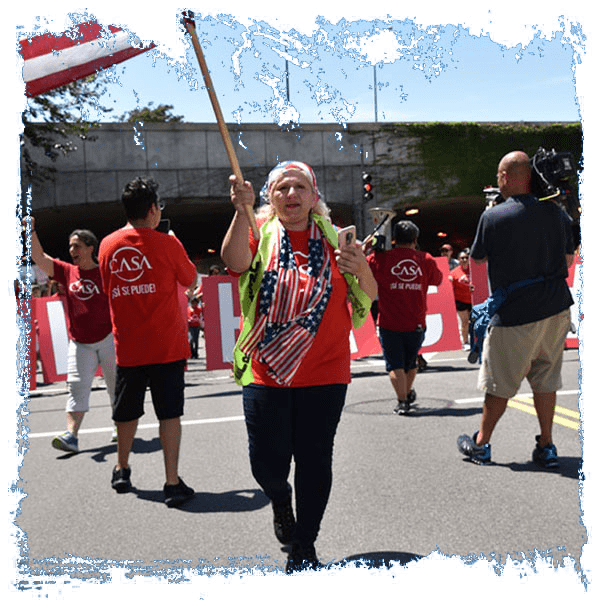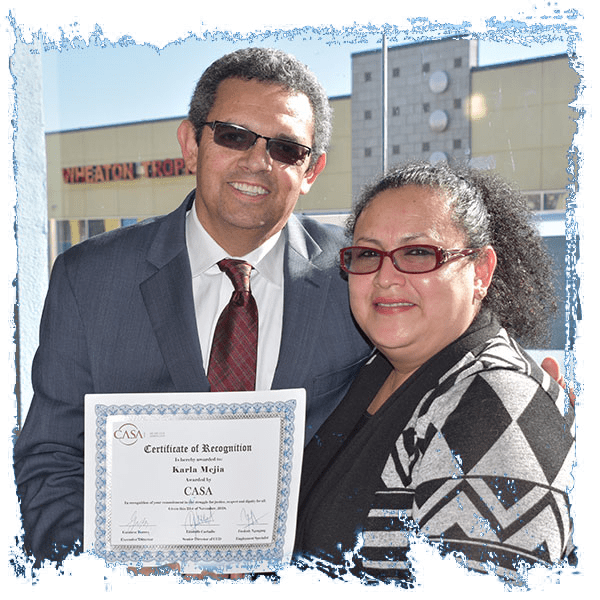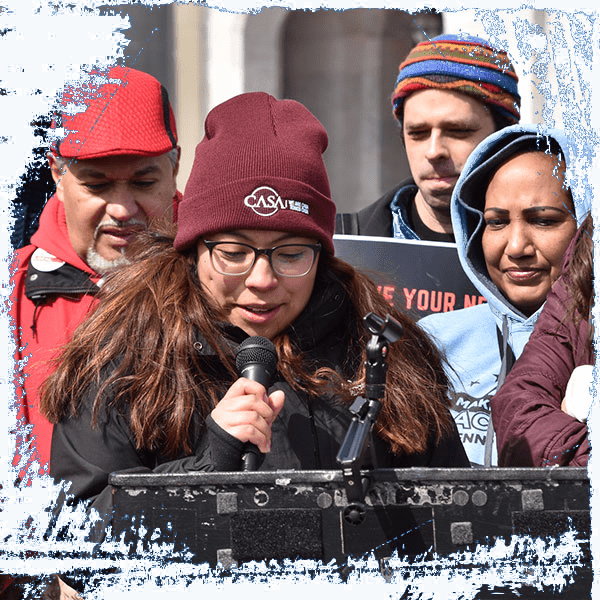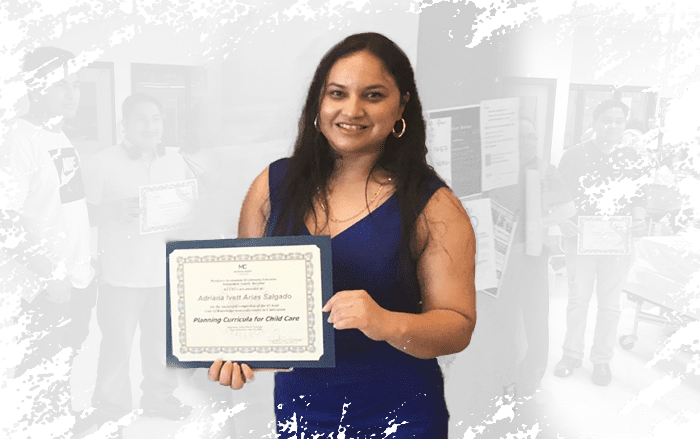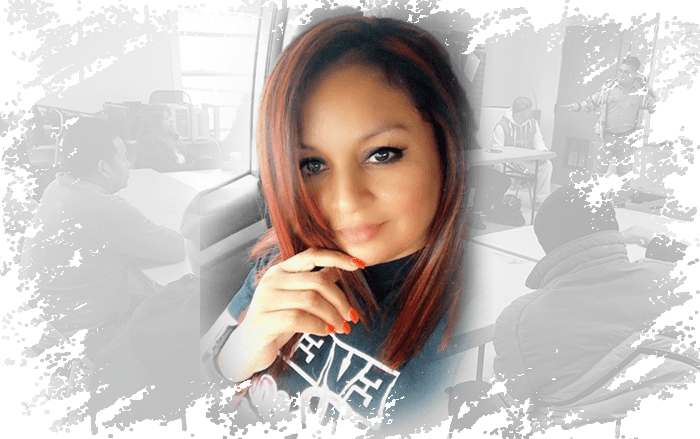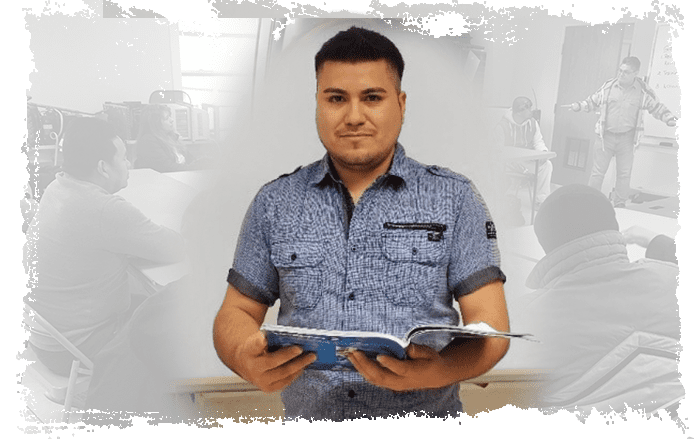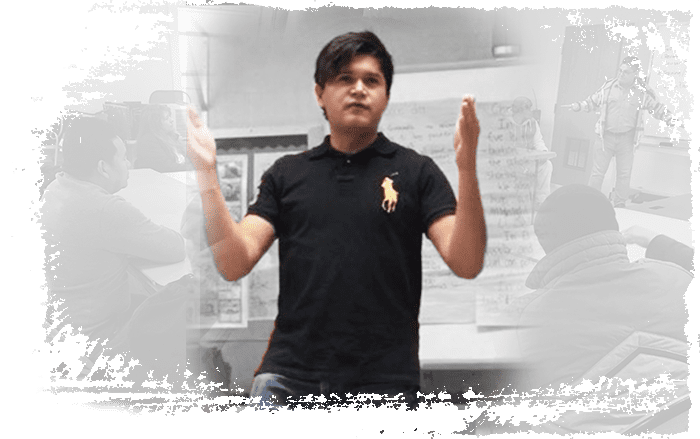This year, CASA also began a new partnership with Montgomery County who now subsidizes a portion of the citizenship fees. This support enables even more residents to access these critical and comprehensive citizenship services. Partnerships like that with Montgomery County, as well as established partnerships with local credit unions that provide low-interest loans to cover government fees, have helped remove the intimidating barrier of ever-increasing citizenship fees for many low-income families.
IMPACT NEWS
2019 ANNUAL REPORT
Building Community
Building Power
JUSTICE FOR ALL!
“Power concedes nothing without demand. It never did and it never will. […] The limits of tyrants are prescribed by the endurance of those whom they oppress.”
— Fredrick Douglass
While CASA continued to expand its geography in 2019, opening a new center in Lancaster, PA, and completing construction and renovations on our brand new Education & Employment center in Baltimore, our primary focus remained expanding the scope of our ambition for justice. In 2019, CASA set our sights on ensuring that the tireless advocacy of our members and staff benefits our entire immigrant, Latino, and working class community.
This means recognizing that when we fight for basic civil and economic rights like a living wage for all workers, we ensure that it includes our “over-age and under-credentialed” youth workers. When we provide ESOL classes and other services, we recognize that our members not only speak Spanish – whether they speak a regional language from their country of origin such as Mam or Amharic, or they speak French such as our increasing number of West African members. Throughout 2019, CASA made sure that our fight for justice is a fight for justice for ALL!
CASA Services
CASA services are member-driven responses to the issues our communities face. From assisting with the citizenship process to helping our members navigate an unfamiliar education system, so that they can be involved in their children’s education, 2019 was a remarkable year for CASA’s member service programs!
Service Highlights
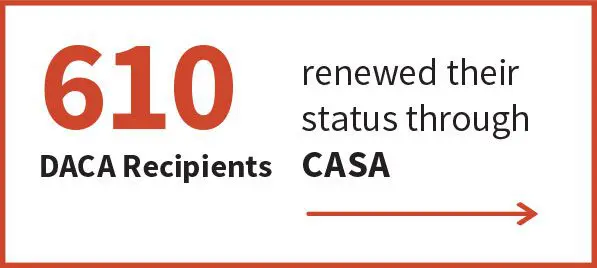


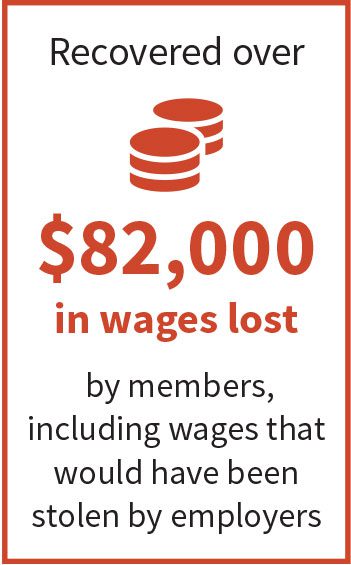


1,754
.............................................
Legal Permanent Residents were provided assistance in applying for citizenship across our 3 states
Comprehensive services included: documentation preparation, legal counseling, exam preparation and mentoring as well as financial literacy and access to credit to afford fees assessed by the government.
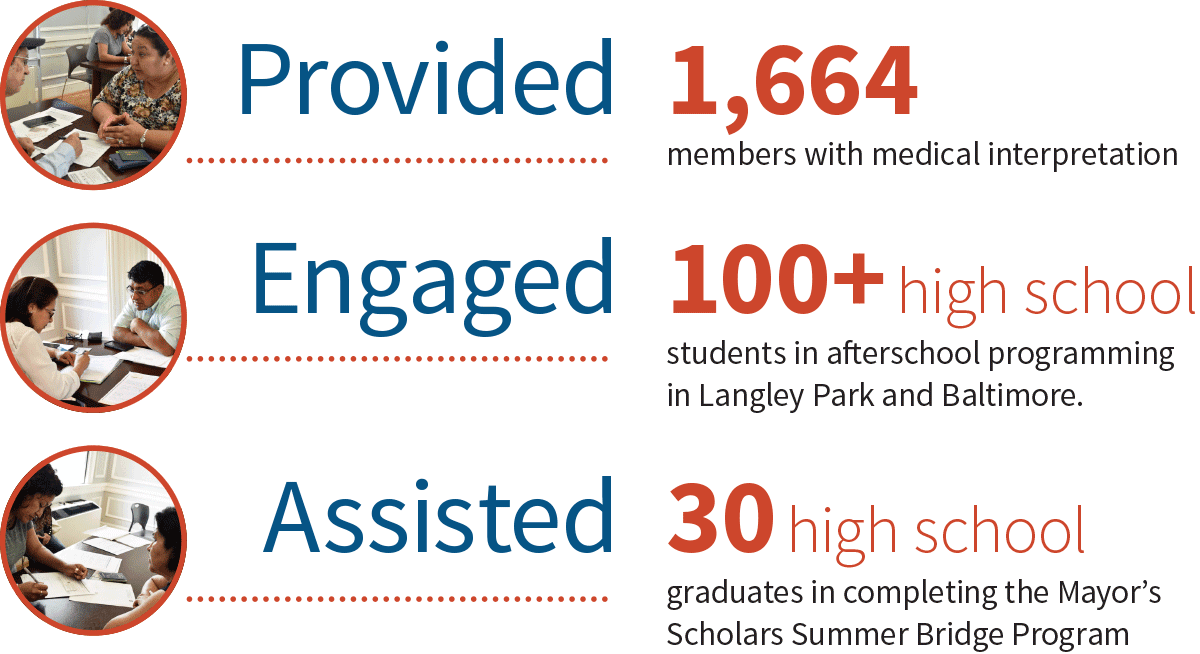
This year, CASA also began a new partnership with Montgomery County who now subsidizes a portion of the citizenship fees. This support enables even more residents to access these critical and comprehensive citizenship services. Partnerships like that with Montgomery County, as well as established partnerships with local credit unions that provide low-interest loans to cover government fees, have helped remove the intimidating barrier of ever-increasing citizenship fees for many low-income families.
Meet one of 2019’s new US citizens, Henry from Liberia.

Workforce Development
One of the cornerstone services CASA offers is workforce development: empowering people to gain the skills, knowledge, and access to jobs they need to better support themselves and their families.
We are happy to report that in 2019, 975 workers participated in CASA’s employment program earning over $2,268,000 for their families. 11,386 individuals obtain a daily or temporary job and 95 individuals obtain a permanent position with the help from CASA.
The wages earned were set democratically by workers according to their skill set. Overall, the average wage of a CASA worker was significantly higher than the federal minimum wage, or minimum wages of Maryland, Pennsylvania, and Virginia. On average, workers who participated in CASA’s Employment program earned $15.89 per hour.

In 2019 CASA connected with 139 community members who were interested in creating a small business last year, and provided many of them with counseling and services helping them incorporate and find loans to begin their businesses.
Skill Building for the Work We Need Now
No Solo Espanol
Currently, of our 107,000 all time members, 147 countries of origin are represented. Over 75% of the world’s nations are represented in CASA’s membership.
ESOL CLASSES STATS
2,235 participants in 2019
After completing CASA’s ESOL classes, participants are asked to take surveys reflecting on their progress and achievements.
72% of survey participants reported better communication in english between themselves and their boss, coworkers, or customers.
66% also reported better communication in english with their neighbors
Participating in CASA’s ESOL program doesn’t just help the participant, it helps their families and communities.
90% of ESOL students with children who took the survey responded that they understand their child when the child speaks english better than they did before participating in CASA’s ESOL program.
94% of ESOL students with children who took the survey began to read more with their children
83% of students with children who took the survey reported being able to read their child’s report card
77% of students with children who took the survey helped their children with their homework in english
A parent’s involvement in a child’s education is absolutely essential. Study after study shows that an involved parent leads to better performance in school for a child. By breaking down the language barriers that exist between an immigrant parent and their child, we are also ensuring that our community’s next generation is on the right track.
The numbers are impressive, but the people behind them are even more so. In 2019, we were truly inspired by one of our truly outstanding and long-serving teachers, Joseph Ortega. Read Joseph’s powerful story…
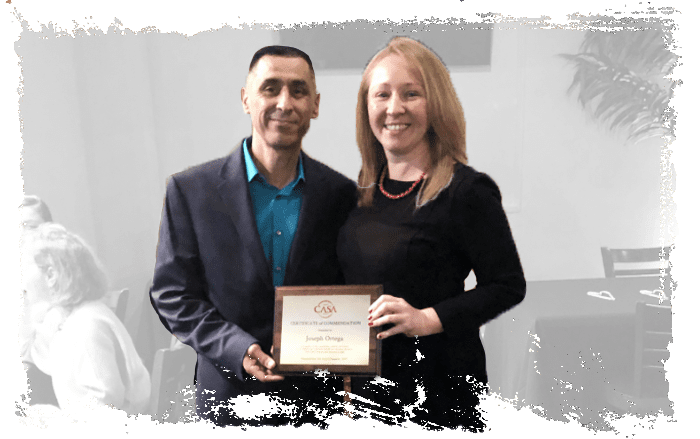
William from Guatemala Felix from El Salvador Fight for $15
Ensuring that people have the skills and knowledge to participate in the workforce is not enough to ensure that they can support themselves and their families. In fact, studies show that there is not a single US state in which a full-time worker making minimum wage can afford the median two-bedroom apartment, and in 28-states, that same worker can’t even afford the median one-bedroom apartment. About 1 in 10 US workers are immigrants, but about 1 in 5 low wage workers are immigrants — low wages are unfair to everyone, but especially to immigrants, who are often at the whim of their employers. That’s why CASA is and has been deeply committed to the Fight for $15/hr minimum wage at the local, state, and federal levels.
Our biggest 2019 victory by far in this fight was WINNING a $15/hour minimum wage increase statewide in Maryland! Despite the Governor vetoing the bill that initially was passed by the Maryland House and Senate, the amazing work of our members, supporters, and allies meant that Maryland legislators had more than enough votes to override the Governor’s veto and pass the bill into law in March of 2019! While the rollout goes in stages, reaching $15/hour by 2025, workers across the state of Maryland will feel the benefits right away as the state minimum wage climbs to $11/hour on January 1st of 2020.
We fought hard to raise the minimum wage in PA (or this one or this one or this one, or this video of a member and Virginia, and made real progress in solidifying relationships with our partners and state lawmakers. We look forward to working with lawmakers in both PA and VA in 2020 to ensure that they follow Maryland’s lead.
CASA’s Model Works
Now We’re Going National with ‘People Are Power’!
In 2019, CASA received one of our largest ever programming grants in the form of a $1 million dollar investment from the Chan Zuckerberg Intiative and Rockefeller Foundation’s Communities Thrive Challenge. These funds will allow CASA to create the new People Are Power national training institute! What inspired this generous investment in CASA? CASA’s proven 35-year track record of building power in our communities! The CASA model focuses on building community-based power through organizing, member-centered services, civic engagement, and true member leadership and priority setting, took many years to get to where it is (and we’re still learning every day!), but all that effort has lead to a deep knowledge and understanding of how to do this work that we want to pass on to ally organizations across the country. With this funding, CASA will launch People Are Power to help empower others to duplicate our success in their own communities. Specifically, we’ll be investing in organizations in North Carolina, Michigan, Wisconsin, Pennsylvania (outside of the areas where CASA already works), and Texas. CASA in Action will also participate in the training as we hope that spreading our model also leads to political and electoral success for these organizations, leading to key national victories for our movement in 2020.
